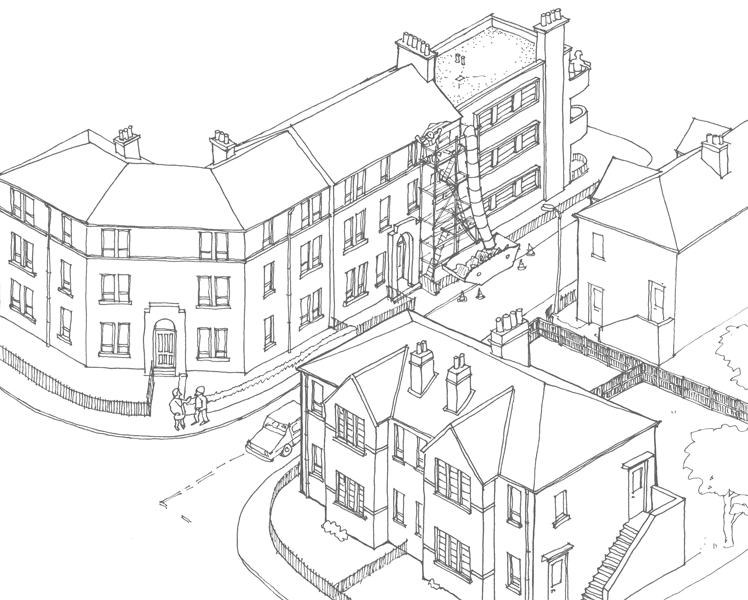Flat and pitched roofs, gutters, and chimneys
1920s - 1930s flats had roofs like those on older tenements. Tiling is more common than slate.
External brick, block, and render walls
Early types have solid brick walls, but cavity walls started to be used. Block walls were often rendered.
Non-traditional wall types
It may be hard to detect your building type since many of these buildings have now been overclad.
Estate landscaping
It looks like public space, but some owners have to pay to maintain these areas.
Windows
Some of these buildings still retain their original timber windows and these can be maintained.
Balconies
May be a cause of cold and damp, especially if the rest of the building has been overclad.
Drainage and drainpipes
Cracked, blocked, and leaking drainpipes saturate walls leading to cold, damp, and rot.

1. Flat and pitched roofs, gutters, and chimneys
1920s - 1930s flats had roofs like those on older tenements. Tiling is more common than slate.
2. External brick, block, and render walls
Early types have solid brick walls, but cavity walls started to be used. Block walls were often rendered.
Brick, block, and render walls
3. Non-traditional wall types
It may be hard to detect your building type since many of these buildings have now been overclad.
Non-traditional building types
4. Estate landscaping
It looks like public space, but some owners have to pay to maintain these areas.
5. Windows
Some of these buildings still retain their original timber windows and these can be maintained.
6. Balconies
May be a cause of cold and damp, especially if the rest of the building has been overclad.
Find out how balconies can cause damp
7. Drainage and drainpipes
Cracked, blocked, and leaking drainpipes saturate walls leading to cold, damp, and rot.
8. Services
Gas, water, electricity, and communal aerials - when do they become your responsibility?